With China’s ministers refusing to take the calls of their Australian counterparts, bilateral relations have been outsourced to the Global Times, the Chinese Communist Party’s colourful mouthpiece. The Chinese joke that the characters for the Global Times sound like the characters for ‘Muddled Shit Times,’ a felicitous coincidence they say, since it also describes the content. While most state media is dutifully dull, the Global Times is the voice of China’s raging id and editor Hú Xijìn is the idiot-in-chief. Known as ‘Frisbee Hu,’ he’s described as ‘a dog that swerves every which way to catch the latest CCP curve.’ It’s not a compliment. In the West a dog is a man’s best friend, in China, dogs are eaten. No slur is more demeaning than a ‘running dog,’ in this case of communism, abjectly hoping for scraps from His Master’s Voice, Chairman Xi.
When Scott Morrison reacted in horror to the tweet of a doctored photo of an Australian soldier with a ghoulish grin, about to slit the throat of an Afghan child, Hu editorialised that ‘Morrison should kneel down on the ground, slap himself in the face, and kowtow to apologise to Afghans… in a live telecast.’ It takes chutzpah, coming from a government that has locked up a million Uighur Muslims in concentration camps and is credibly reported to slaughter them on demand, to supply spare parts for organ transplants. Hu rounded off his homily saying the Australian government was being ‘provocative’ and wanted a ‘spanking’. Perhaps even for Mad Dog Hu, it was a bridge too far. This week he was accused of marital infidelity and is being investi- gated by China’s equivalent of the vice squad. Hu’s a naughty boy?
Meanwhile, the Global Times is boasting that China’s exports have reached a record high, boosted by foreign demand for pandemic supplies and electronic devices for working from home. None of this would have been possible without China’s greatest export of 2020, 68 million cases of Covid-19 of which 1.5 million have proved fatal. Who says China isn’t a world leader in biological innovation?
Modestly, China is reluctant to take credit. This week, the Global Times sug- gested the virus might have come from Australian steak. It admits it has no evi- dence but why should that be an obstacle? In May, Chinese scientists admitted there was no evidence for China’s first claim, that the virus leapt to humans from animals sold in the Wuhan seafood market. It confirms the theory that the reason Sars-2 is called a ‘novel’ coronavirus is because of its fictional origins, which China is still rewriting.
Research shows the viruses most closely related to Sars-Cov-2 were found in horseshoe bats in Yunnan collected by Chinese virologist Shi Zhengli, aka Bat- woman. They were brought to the Wuhan Institute of Virology, 1,800 kilometres away, after infecting six miners and killing three. The 2002 Sars outbreak also originated in horseshoe bats in Yunnan, so sure, the obvious explanation is not that the virus leaked out of a dodgy lab in Wuhan with a bad safety record, but that it was imported from Australia, where there are no horseshoe bats infected with Sars-like coronaviruses.
‘Australian media do not need to act so fragile and irritated upon seeing the country’s name in the report,’ said the Global Times tetchily. ‘Is it too sensitive for Australia to feel like a victim?’ Well, look who’s talking. In April, merely asking for a credible inquiry into the origins of the virus provoked an uproar on a scale last seen when Charles Darwin published On the Origin of Species.
China’s ‘feelings were hurt,’ a Chinese diplomat pontificated. They have been assuaged by an 80 per cent tariff on Australian barley, the banning of timber from Queensland and Victoria, the halting of Australia’s rock lobster trade ahead of the banquet season, holding up more than a billion dollars of Australian coal ship- ments, a ban on six beef exporters and a tariff of up to 212 per cent on Australian wine. Still, it’s not all bad news. China’s economic warfare has pushed up iron ore and coal prices, while MPs from friendly countries around the world are encourag- ing people to buy Australian wine.
Former Australian ambassador Geoff Raby’s constant criticism of Australia’s handling of its relationship with China wasn’t enough to spare him from the grapes of wrath. His Auswan wines were hit with a tariff of 107 per cent, although, if you’re a glass half-full type you’d say he was spared 105 per cent of the tariff. Either way, it puts a whole new spin on whining and dining the comrades, when the Little Red Book comes with a Little Red Wine List. Still, this is a win-win. With reduced Chinese consumption, Grange may be a little cheaper in Australia, while the Chinese elite will be forced to quaff a little more Chateau Raby.
That’s the price tag says the Global Times. ‘The awkward situation that Australia is in simply resulted from the fact that it provoked China but was unwilling to pay for the damage.’ Australia’s friends beg to differ. The UK, France and New Zealand rallied around. Jake Sullivan, national security adviser to Biden, said the US would ‘stand shoulder to shoulder with our ally Australia and rally fellow democracies to advance our shared security, prosperity, and values.’ India is also not taking Chinese bellicosity lying down. China’s exports to India declined by 13 per cent in retaliation for Chinese border aggression. ‘India’s economic punishment of Chinese businesses is abnormal and morbid,’ claimed the Global Times hopefully.
If our troubles seem bad, spare a thought for Taiwan. China got away with a slap on the wrist after tearing up the ‘One Country, Two Systems’ agreement, which was meant to guarantee the rule of law and Hong Kong’s autonomy until 2047. Taiwan is the next target. Its foreign minister Joseph Wu told the ABC he hoped the quadrilaterals – Japan, Australia, India and the US – can ‘work together to prevent China from further expansionism.’ That’s the plan. Japan, France, and the US will also carry out their first joint military drills in May 2021.
As Australians tuck into rock lobster at Christmas, they can comfort themselves that they still exported more to China than in any year except 2019 but what can we look forward to in 2021? China is already threatening bans on Australian sugar, cotton and copper but at least it is unlikely to target our top two exports – iron ore or LNG – worth almost $100 billion. What we don’t want from China is Covid-21.
‘2020 has turned out to be a great year for China’s trade, not just in terms of growth but also all the free trade agreements,’ Cao Heping, an economist at Peking University told the Global Times. Maybe. China’s trade surplus increased 102 per cent, but its trade and other agreements are not worth the paper on which they are written.
Got something to add? Join the discussion and comment below.
Get 10 issues for just $10
Subscribe to The Spectator Australia today for the next 10 magazine issues, plus full online access, for just $10.
You might disagree with half of it, but you’ll enjoy reading all of it. Try your first month for free, then just $2 a week for the remainder of your first year.

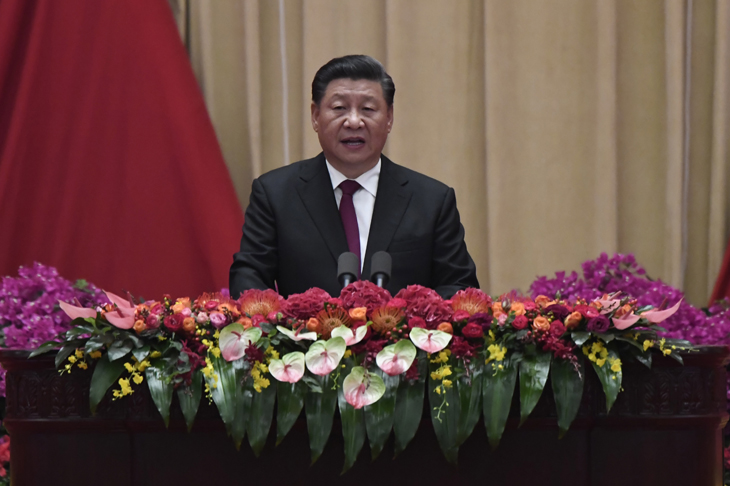
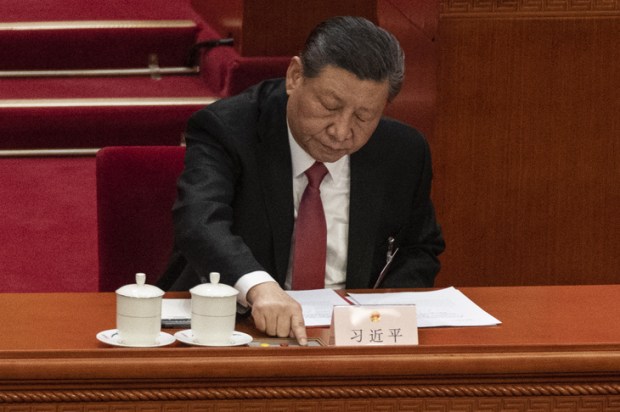
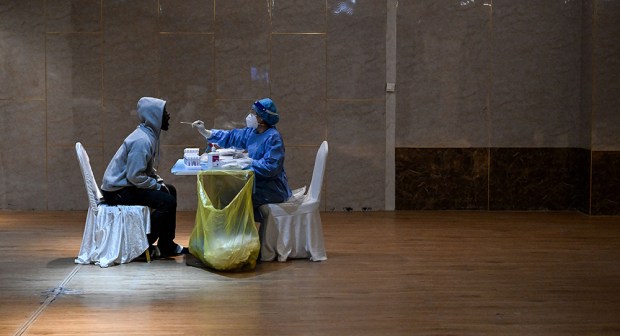
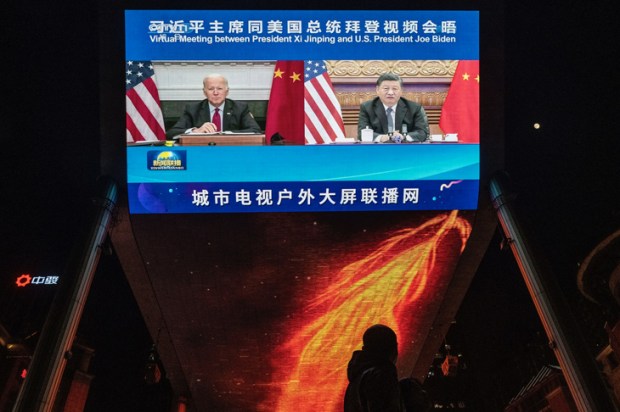
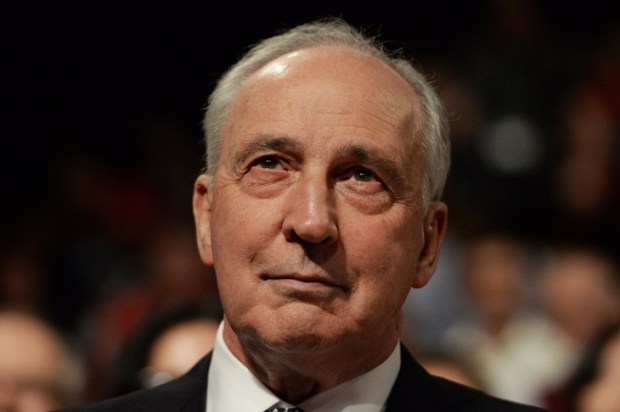
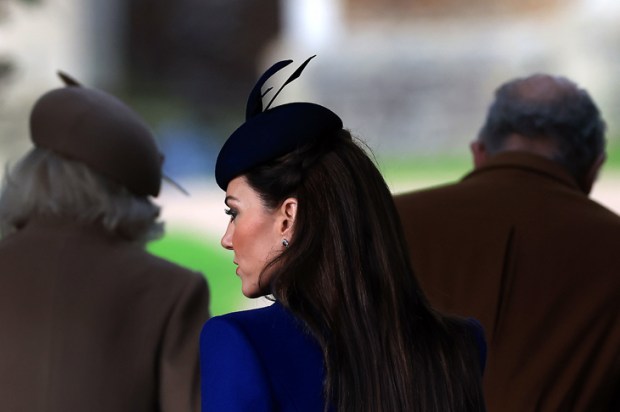
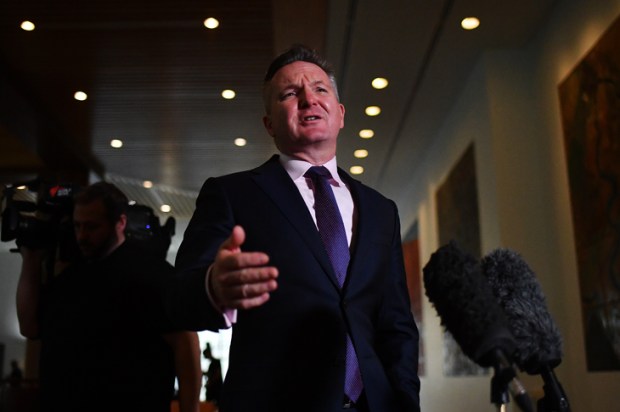






Comments
Don't miss out
Join the conversation with other Spectator Australia readers. Subscribe to leave a comment.
SUBSCRIBEAlready a subscriber? Log in